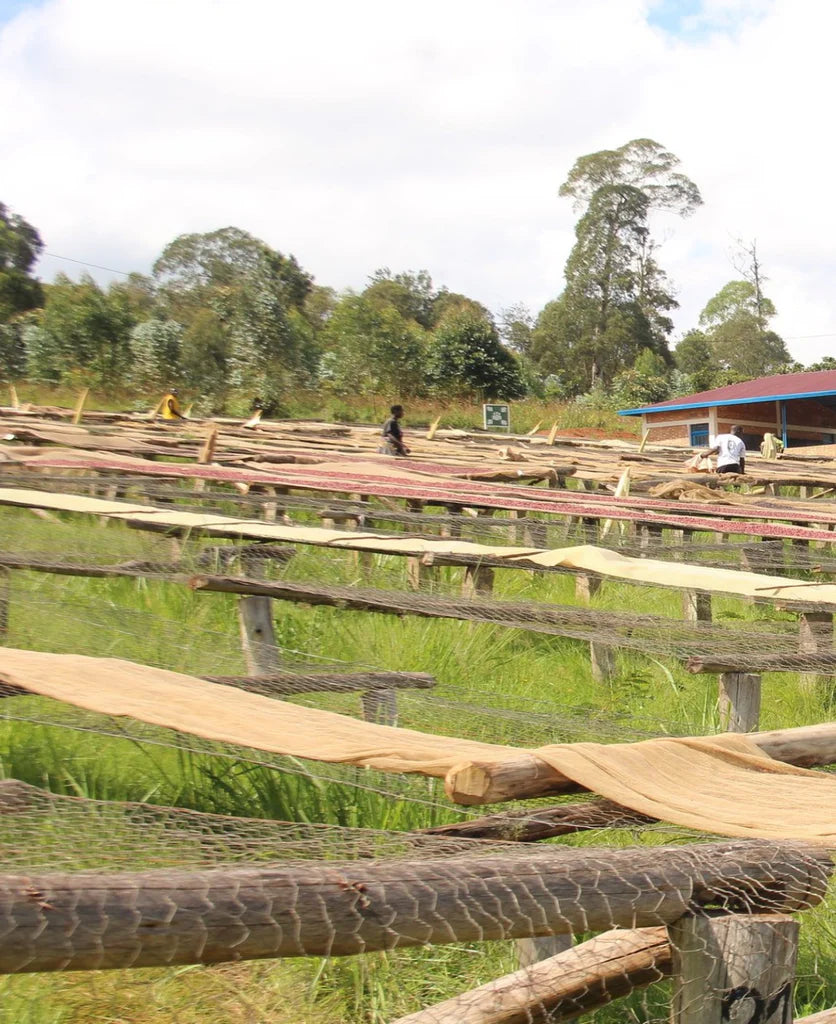
Masha Washing Station
Coffee Production at Masha Washing Station
1. Historical Background
The Masha Washing Station was established in 1989 in the Gatara commune of Kayanza Province, located in northern Burundi near the Rwandan border. The station takes its name from the Kirundi word “amasho”, meaning “herds of cattle,” a nod to the region’s deep agricultural roots. Its founding came during a period of infrastructure expansion in Burundi’s coffee sector, with central washing stations (CWS) playing a pivotal role in elevating the country’s coffee to meet global specialty standards. Masha quickly became one of the most productive and quality-driven stations in the region.
2. 20th Century Growth and Regional Development
The Masha station helped catalyze the growth of specialty coffee production in Gatara and surrounding communities by providing access to centralized processing and international markets. Unlike estate-based production models, Masha works exclusively with smallholder farmers—more than 2,500 producers contribute cherry to the station each harvest. These farmers typically manage 250–300 coffee trees on small plots of land averaging 0.1 to 0.25 hectares. The communal model established through Masha has allowed for increased traceability, shared investments in quality, and consistent market access.
3. Present-Day Production and Processing Trends
Masha is located at approximately 1,672 meters above sea level, an altitude that fosters slow cherry maturation and high sweetness potential. The station exclusively processes Red Bourbon, the dominant cultivar in Burundi, using fully washed methods. This includes an 18–24 hour dry fermentation, followed by a 12–18 hour wet fermentation, then a post-fermentation soak. The coffee is then dried on over 170 raised beds for up to 21 days, depending on climate conditions. The station can process roughly 750 metric tons of cherry per season, making it one of the largest producers in the area. Each lot is meticulously tracked to ensure traceability and consistency.
4. Market Dynamics and Quality Recognition
Masha Washing Station has achieved international acclaim for the clarity, sweetness, and structure of its coffees. In 2012, Masha earned first place in the Cup of Excellence Burundi competition, and has since maintained a strong reputation for quality. The cup profile typically features honeyed sweetness, floral complexity, notes of red fruit, plum, black tea, and caramel with a silky body and sparkling acidity. The station’s success has made it a favored partner for international importers seeking traceable, high-elevation African coffees. Despite challenges related to infrastructure, political instability, and market volatility, Masha continues to demonstrate the potential of Burundi’s smallholder-led production model.
5. Outlook
Masha’s future is closely tied to the continued development of cooperative-based models in Burundi. With its established reputation and skilled producer network, the station is well-positioned to capitalize on the growing demand for transparent, high-quality African coffees. Long-term sustainability will depend on ongoing investments in training, drying infrastructure, and climate resilience. However, as one of the country’s best-known stations, Masha is likely to remain a central player in Burundi’s specialty coffee identity for years to come.
Shop Coffees from Masha Washing Station
-
Example product title
Regular price $19.99 USDRegular priceUnit price / per -
Example product title
Regular price $19.99 USDRegular priceUnit price / per -
Example product title
Regular price $19.99 USDRegular priceUnit price / per -
Example product title
Regular price $19.99 USDRegular priceUnit price / per


